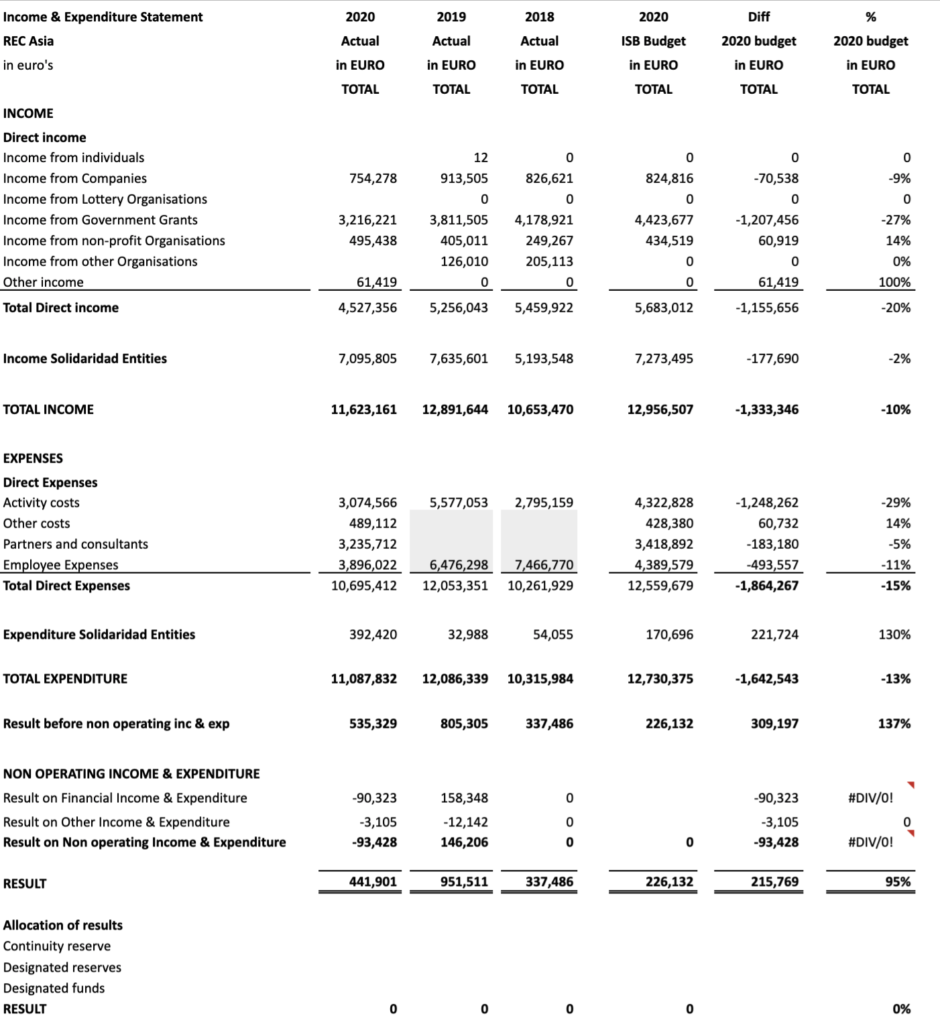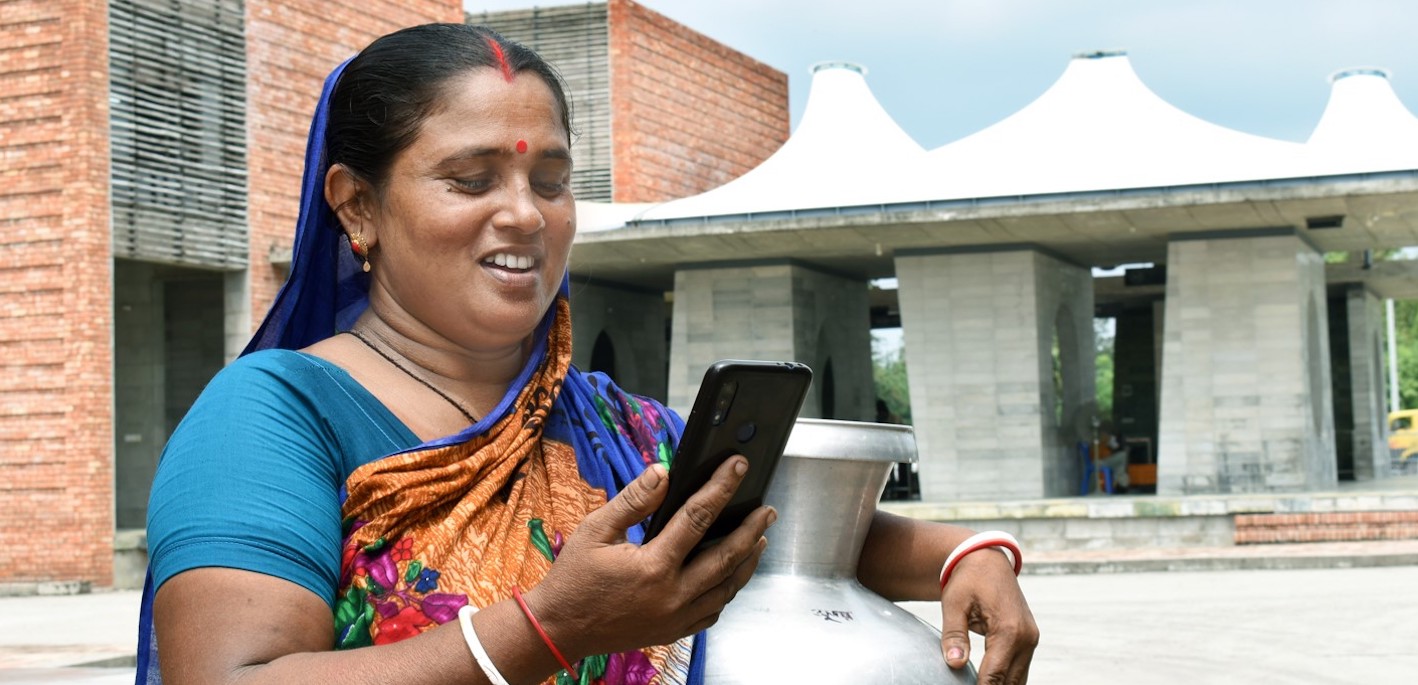Highlights
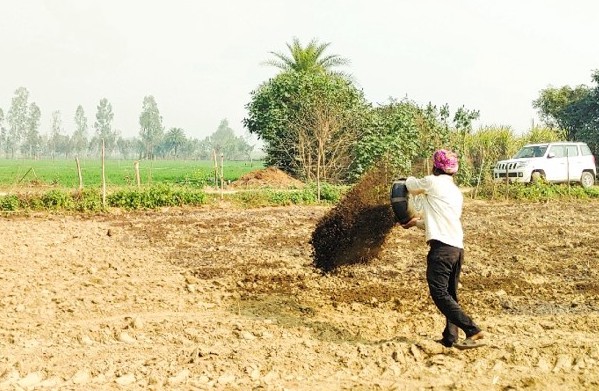
Good practices
A total of 504,499 farmers were reached with 461,891 hectares of land under sustainable management. We facilitated 19,181,865 MT of sustainable production and 120 estates, mines and factories adopted good practices
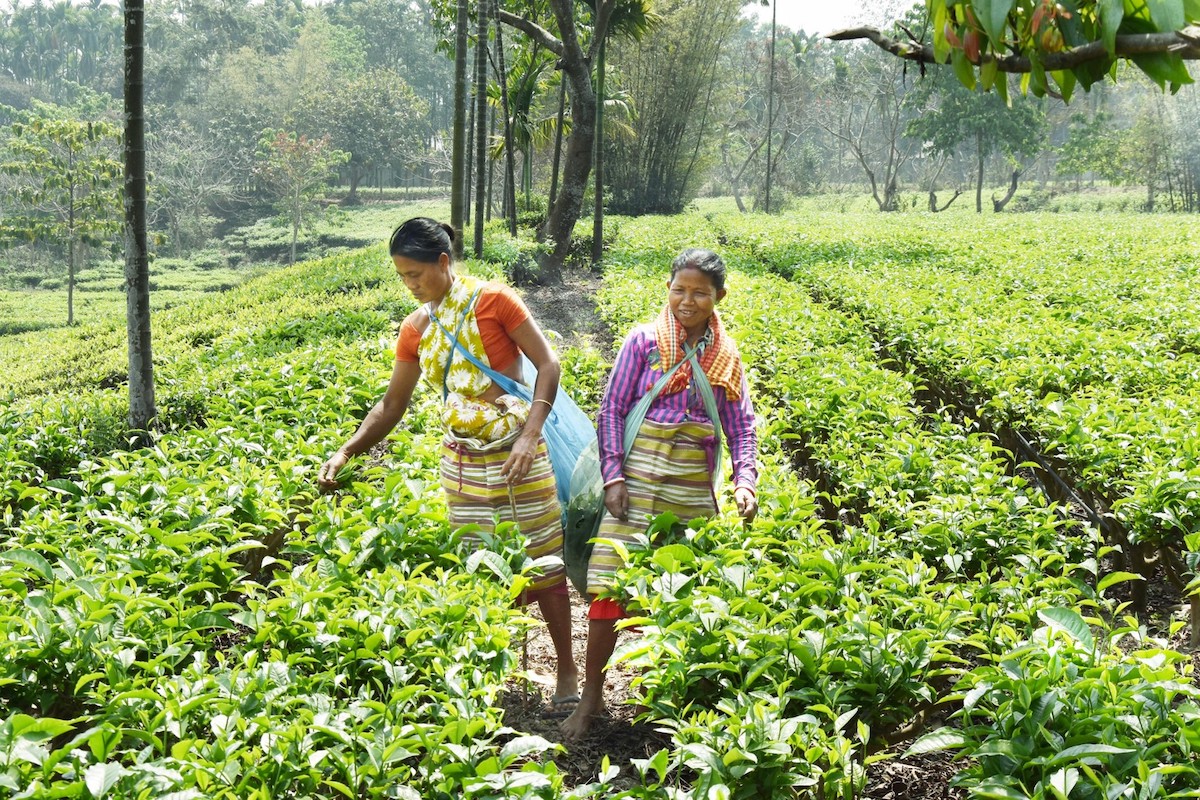
Robust infrastructure
Together, 50,000 farmers, through a federated model, now own the Village Super Market; a market transformative initiative. A total of 1,383 producer groups were promoted and 630 rural entrepreneurs supported.
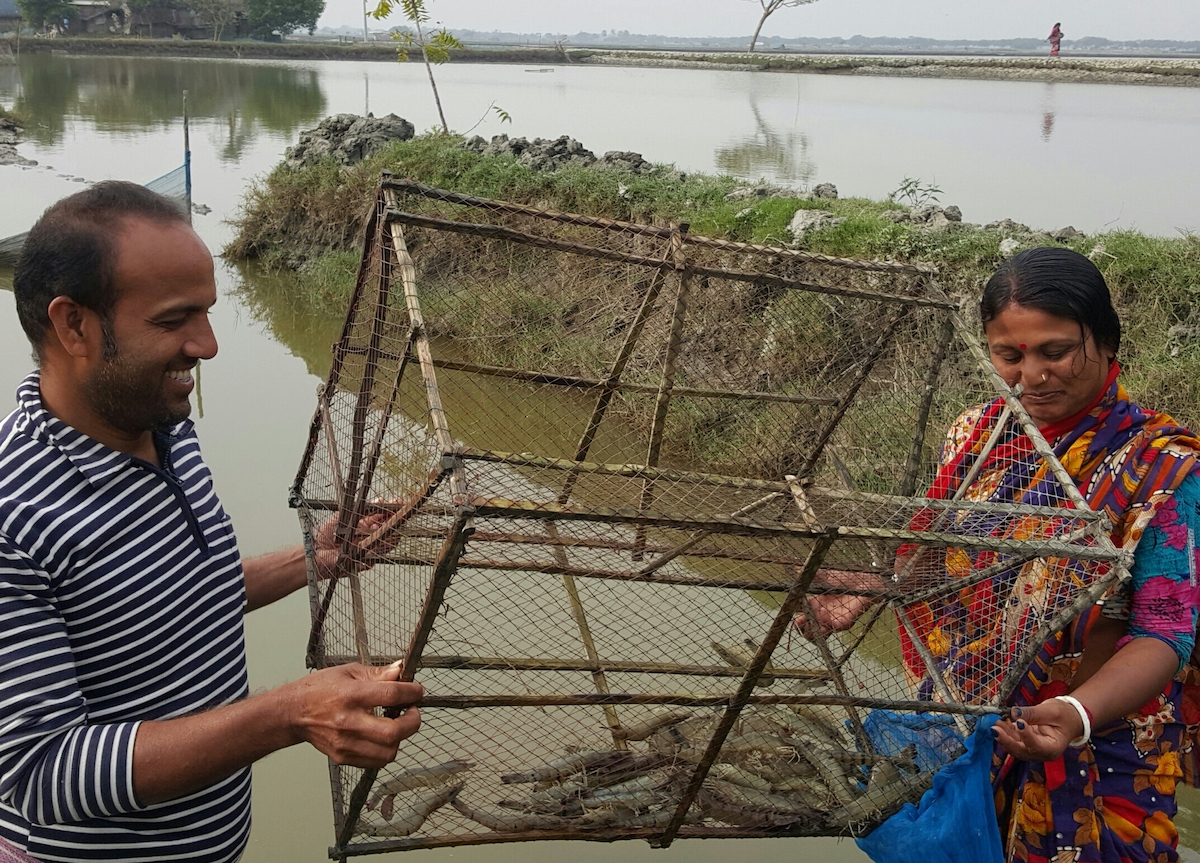
Policy environment and sustainable landscape
Seventeen policy recommendations made to public and private stakeholders across 41 multi-stakeholder platforms.
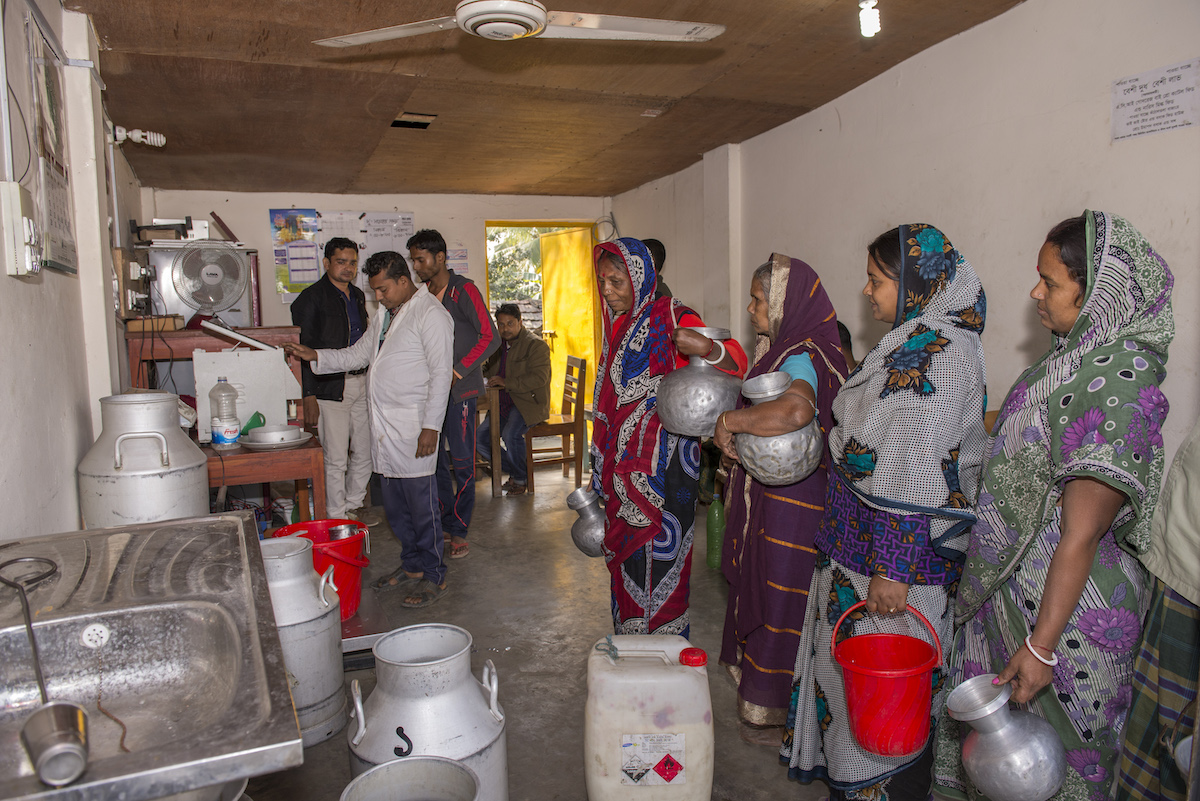
Gender inclusivity
More than 12,000 women dairy farmers were empowered with digital technologies to have better control on revenue earned.
Results

500,000+
Farmers, miners and workers trained to adopt good practices

462,000
Hectares under sustainable management

256,000
Farmers or miners organized in a producer group or cooperative
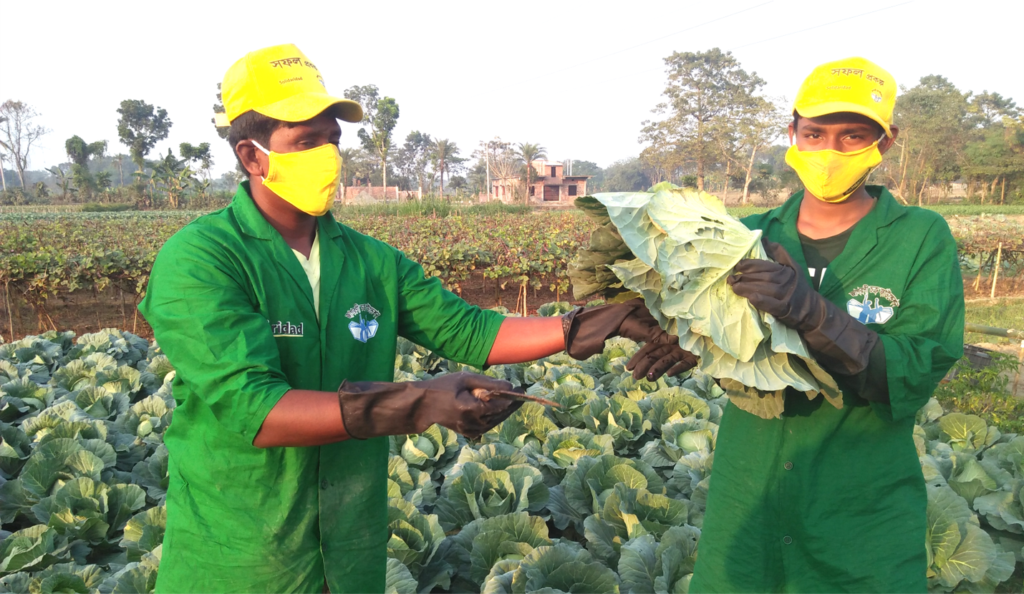
A deep dive
Finding synergy
We brought together experts across sectors, value chains, and professions to deliver tailored and comprehensive programming. A multitude of partnerships and collaboration enabled the achievement of targets, despite Covid-19 challenges.
During 2016-2020, Solidaridad Asia promoted the adoption of good practices by farms and industry sites to ensure economic, social and environmental sustainability that helps bring people out of poverty. Good practices referred to not only a change in agriculture or industry practices, but also financial literacy, fair wages, protection of workers and legal compliance and use of digital solutions. During the five-year strategic period, Solidaridad Asia achieved the following milestones under good practices:
- Empowering farmers through innovation: Leveraged technological advances to increase speed and scale of field interventions and engaged with farmers to provide them with personalized information on production systems and market connectivity. This can be witnessed through digital applications like TRINITEA and I3SF, as well as developing partnerships with IDEA-Vodafone Foundation that facilitates integration of IOT-based solutions i.e. sensors, automatic weather stations etc. Further, during 2020, with the rise and spread of COVID-19, digital technology-enabled learning and knowledge sharing was used to facilitate delivery of timely and targeted information to farmers.
- Steering towards gender-inclusive initiatives: Worked towards integrating gender interventions in its programmes to ensure increased participation of women, particularly in leadership positions, in formation of collectives for trade and agriculture extension and in strengthening the existing collectives.
- Stewardship in responsible industrial, estate and factory processes: Advocated for and implemented good practices in industrial mineral extraction, mills and leather production. For example, the EO-based wastewater discharge has helped tanneries in minimizing the release of total suspended solids (TSS) along with other reductions.
- Promoting circularity: Waste to wealth initiative was launched in India to reuse the leather waste and convert it to reusable materials like tiles, belts, purses and other products. A one of its kind supply chain intervention to strengthen the waste supply chains and reduce the land and water pollution. Initiated a pilot to recover, reduce, reuse and recycle PET bottles. 300 MN MT of PET bottles are now recycled reducing the plastic load. Additionally, built a model on tracing the source of waste generation with support from waste collectors to get segregated waste at the household level, after a round of orientation of families living in nearby localities. This was done in partnership with Plastx, an Australian company.
- Initiative expanding beyond good practices in agriculture and industries: Integrated socio-economic changes through awareness on health, nutrition, WASH and finance. Solidaridad Asia work benefitted more than 100,000 families and increased their capacities at the grass roots on WASH, health, nutrition, environment and gender.
Solidaridad Asia has directly and indirectly engaged in the development and strengthening of supply chain interventions that support activities under good practices. Some of the main achievements include the Village Super Market (VSM), a market transformation initiative in Bangladesh currently supporting 15,000 farmers and helping them gain right prices and quality-based pricing for their products.
The weighing mechanism is better and accurate at SBIs. We sell our products to the SaFaL supply chain and not to other local places because we get accurate weight at SaFaL supply chains.
Horticulture pg members
We promoted 630 entrepreneurs. Rural entrepreneurs and service providers help bridge the gap in extension, market access and input supply and act as a link between the FPOs and the farmers. For the promotion of rural entrepreneurs, training and capacity building programmes were implemented, including book-keeping, financial management and business planning. Across programmes and countries, entrepreneurs were supported to ensure availability of appropriate knowledge and farm equipment for farmers.
Across Asia, Solidaridad worked towards strengthening the capacities of FPOs and rural entrepreneurs with the objective of ensuring long-term sustainability and viability of their business operations, and better and sustained service delivery for farmers. Three FPOs were registered under the electronic future trading platform provided by the National Commodity & Derivatives Exchange (NCDEX).
In 2016-2020, Solidaridad Asia also concentrated on leveraging the banking and finance sector. In Indonesia, Solidaridad Asia worked closely with the Credit Union Keling Kumang (CUKK) to extend the benefits of financial products to all of CUKK and strengthen their organizational capacity.
Solidaridad Asia firmly believes that the manifestation of sustainable transformation is not a plausible outcome without effective and meaningful synergy between projects and related policies. Solidaridad Asia has been committed to policy engagements and availed multiple strategies to enable policy environments — from creating and empowering networks of stakeholders to providing advice, support and practical tools to public and private decision-makers for improved policy making and enforcement. The ultimate aim is to make sustainability the norm, moving from civil society organization (CSO)¬driven voluntary standards to mandatory frameworks. During 2016-2020, Solidaridad Asia took active initiatives in establishing multi-stakeholder platforms to enhance inclusive dialogue and decision-making and create an enabling policy environment for landscape and market governance. The organization brought together key stakeholders, including producer organizations, local government authorities, businesses and civil society to identify opportunities of joint commitment towards addressing sustainability issues. This led to increased mutual understanding among the stakeholders and a recognition of each other’s role in the value chain.
During this period, programmes like Asia Sustainable Palm Oil Network (ASPN) and Tea Asia resulted in the capacity development of producer associations across Asian countries, leading to unification of policies and aligned sustainability strategies. Through ASPN, Solidaridad has initiated building cooperation between national initiatives in Palm Oil in Malaysia (MSPO), India (IPOS) and Indonesia (ISPO). These efforts will lead to jointly develop mechanisms and a common understanding for large-scale implementation of sustainability frameworks to facilitate smallholders’ inclusion, production and trade of sustainable palm oil. Efforts undertaken through Tea Asia resulted in the CTMA in China to set up the secretariat for the Indian, Indonesian and Chinese tea stakeholders. The apex members including tea organizations of all key Asian tea producing countries-CTMA (China), ITA (India), ITMA (Indonesia), Sri Lanka Tea Board (Sri Lanka) & Central Tea Association of Japan have pledged to hold joint campaigns to increase consumption of high-quality green and black tea in global markets and increase consumer awareness on varieties and qualities of tea and develop a common coordinated roadmap on sustainable development of tea sector globally.
Solidaridad Asia promoted seven national sustainability standards across commodities of palm oil, tea, sugarcane, castor, and industrial minerals.
Solidaridad Asia approach for landscape development is divergent from the commonly understood models of landscapes. We believe that ecology-based landscapes solutions will support the farmers in better management of climate change actions, business integration and policy actions. The Ganga Landscape project in India focused on transforming two key sectors, sugarcane and leather, through sustainable land and water management in the Ganga basin for inclusive economic and environmental benefits. The programme facilitated the foundation of a multi-stakeholder platform that actively engaged in landscape planning and development around the Gangetic plain. The MSP has helped improve the adoption and uptake of technologies in the industrial cluster. In sugarcane growing areas, a 10-point charter was developed by the farmers for promotion of sustainable landscape around the Ganga basin. Solidaridad Asia also organized several advocacy programmes wherein women participants were invited and encouraged for contributing in the programmes by stating their perspective on water-use efficiency.
Solidaridad Asia’s Sustainable Landscape Management programme in Indonesia facilitated integration of inclusive regional sustainable landscape management practices in the plans and policies of landscape stakeholders through the establishment of a Central Java Landscape multi-stakeholder platform (MSP) — Sekretariat Kawasan Pangan Berkelanjutan – SKPB. Dialogues, meetings and discussions were organized through the MSP with the government and stakeholders at the provincial, district and local level as well as at the national level on different aspects and issues of sustainable landscape management.
Most Significant Changes
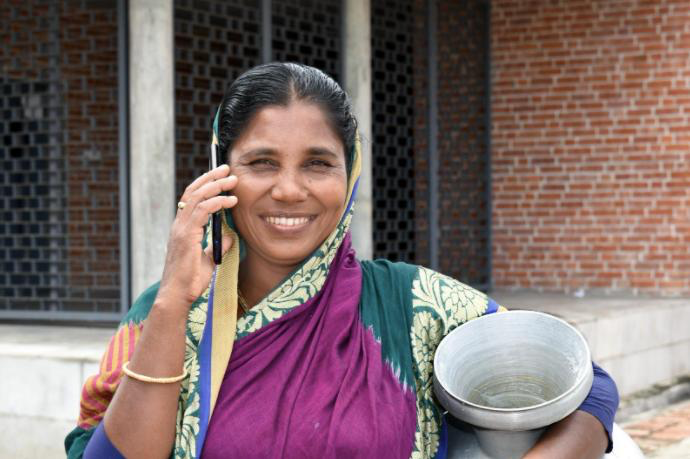
The Digital Gateway to Empower Women Dairy Farmers
Protiva Biswas of the Shinga village in Dumuria sub-district of Khulna region has grown her dairy business from strength to strength over the past decade, but not without her share of challenges.
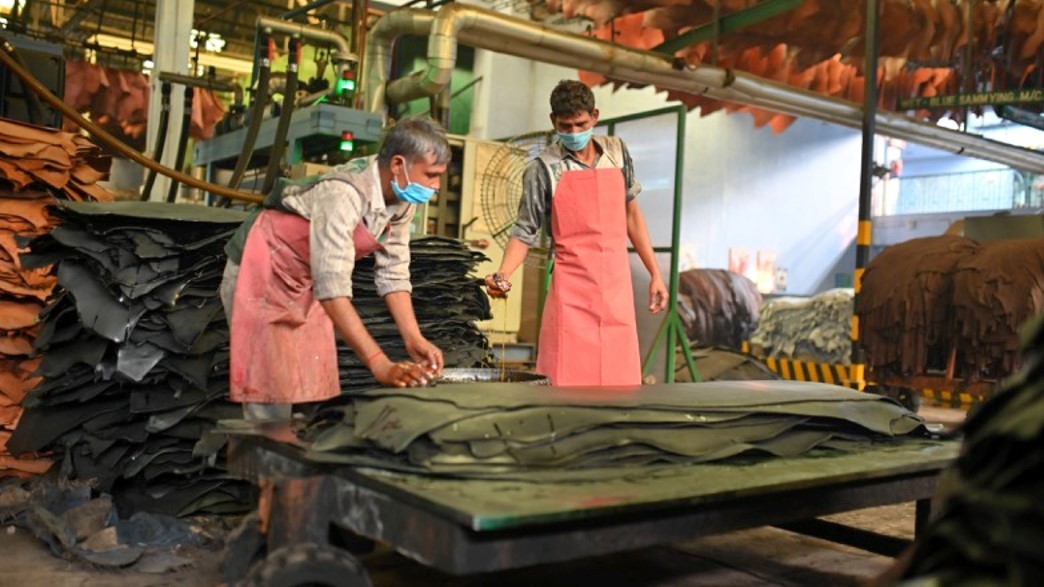
Rejuvenating the Ganges
The sacred Ganga river is however considered to be one of the most polluted water bodies worldwide, strewn around which are several cities, including Kanpur. Renowned as an export powerhouse for leather products, the tannery sector in Kanpur has lately been in the limelight as the primary source of industrial pollution of the Ganga.
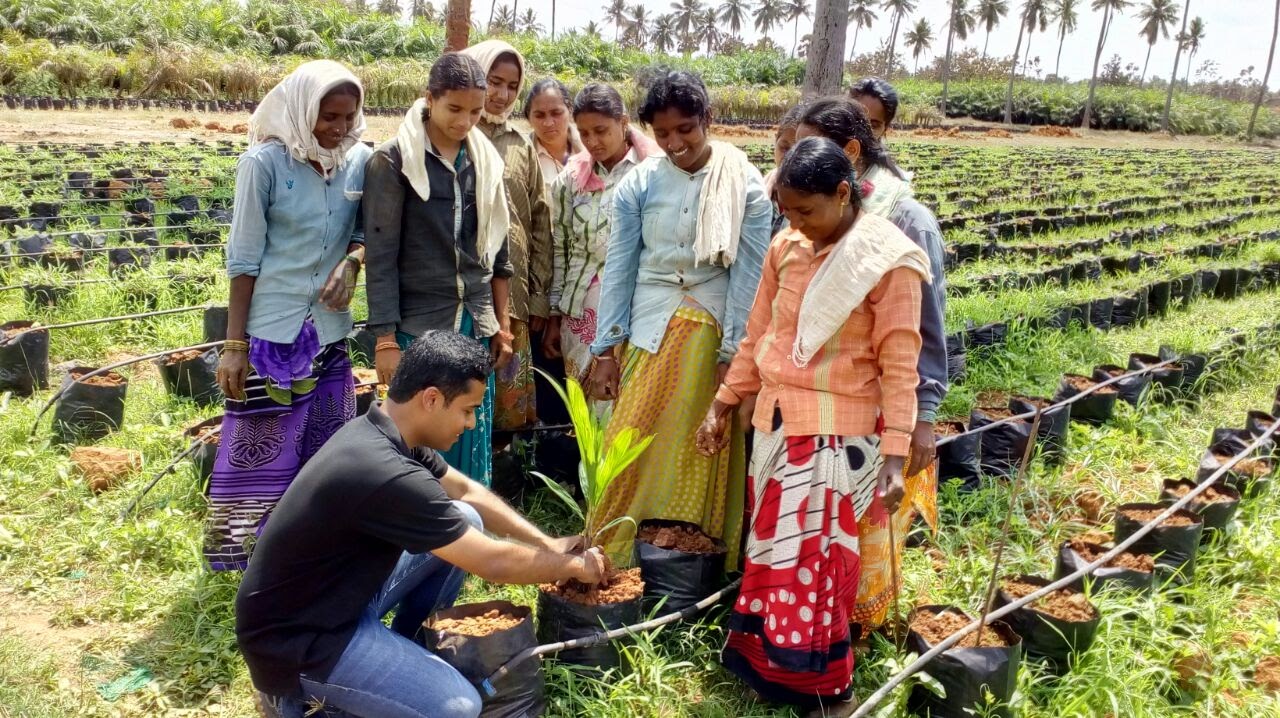
A PATHWAY TO PROMOTE REGIONAL SUSTAINABILITY AND TRADE IN PALM OIL
Palm oil is the most consumed oil in the world, and production is only increasing across Asia. In 2016, Solidaridad launched the Asian Sustainable Palm oil Network (ASPN) to create a space for negotiation and support industry actors to discuss issues linked to domestic vegetable oil market in India and China.
Innovation Areas
Insights
Pushing the envelope
We doubled down on our commitments to integrate gender inclusivity, and balance economic development with environmental preservation. Digital innovations were leveraged to engage and connect smallholders, while also bridging gaps created by Covid-19 restrictions.

Implementation and practice: Gender focal persons from different projects formulated a gender action plan and took relevant steps according to the plan. A standalone project was conceived and implemented with support from USAID. The project aims at bringing women dairy farmers into formal supply chain. The projects plans were integrated with aspects with the support of Gender Strategies.
Knowledge products: Covid-19 has impacted women and men in different ways. A study was conducted in order to determine the impact of Covid-19 on women in South and South East Asia (represented by countries, Bangladesh, India, Sri Lanka and Indonesia) on attributes related to 1. Access and usage of technology and extension services related to farming practices 2. Financial inclusion 3. Livelihoods (farm and off farm) and entrepreneurship 4. Household power dynamics and 5. Health & nutrition including access to medical services and drinking water.
This report would further lead to formulation of strategies on gender inclusivity post Covid-19. Human Centered Design for technologies: As digital tools are being proposed and used in the dairy project, it was realized that the tools should be designed as per the needs and demand from women farmers who are supposed to use these tools. A study was conducted in Bangladesh to understand the need of the women farmers and accordingly the tools have been designed.
Internal Organization: In the year 2020, all the new recruits were provided gender training during their induction and a separate training for all the staff was conducted for the team in China. Internal Complaints Committee was formed as per the Anti Sexual Harassment policy formulated in the year 2018. The committee met every quarter to update the status of any incident reported and measures taken. Regular online meetings were held by the gender focal persons from different projects to keep an update of the gender interventions being implemented, promote cross learning and support each other.
Policy and Advocacy: We participated in and contributed to several external forums, e.g. Sankalp, which had more than 5,000 attendees; Asia Venture Partner Network which had more than 1,000 attendees and SoCap with more than 1,000 attendees. A session on ‘Policy Issues on Access to Finance’ was organized internally that had about 100 attendees as part of a ‘core group’ for policy recommendation. Another online event on ‘An Introduction to Impact Investing’ from the Japanese lens highlighted the role and relevance of impact investing in Asia. These activities enabled Solidaridad Asia to play a prominent role in policy influencing by defining what impact investment is and how it should enable access to finance for MSMEs and farmers. They also create a bridge between Solidaridad’s MASP 3, wherein access to finance is a key issue, and the role of impact investing in it, which acts as an accelerator.
Implementation and Practice: Structuring the Village Super Market (VSM) into a community-owned business remained a focal point of our work. The complexity around impact investing, managing private stakeholder interests, alignment with farmers’ interest and the overall impact of Covid-19 have made it a long and complex but meaningful exercise. A financial and legal structure and a handover plan to the farmer community was made in 2020. We also completed the concept creation for the social-landscape theme ready for pilot (July 2021-22), which will lead to the design of a large-scale impact finance (impact bond), and winded up the flagship TRINITEA programme’s e-commerce business plan.
We continued our efforts to strengthen the initiatives around climate change. New programmes were introduced in Malaysia and Indonesia that would result in adoption of climate adaptive, mitigative practices in Palm oil with improved productivity. Three landscapes programmes firmly embedded actions that resulted in reduced carbon emissions. New varieties of seeds were developed in collaboration with Research agencies in Soy that shortens the crop cycle and negates the effects of early rainfall. Regenerative and Organic farming in Cotton was initiated and is now protecting the farmers from pest attacks. Solidaridad supported farmers were able to save part of their crops in comparison to other farmers in Soy in spite of a large-scale pest attack in India. We participated and anchored workshops and learning sessions on Climate Change in the region and as a first, we developed “Climate Smart Index” that will be rolled out in 2021.
In Solidaridad Asia, information technology (IT) has been instrumental in developing technologies based on GIS software and GPS agriculture. Satellite imagery, drone and other aerial imagery. Major technology innovations have been focused in areas such as the Internet of Things (IoT) and robotics, livestock technology, precision agriculture and artificial intelligence, machine learning, natural language processing and blockchain. We have developed about 31 products that are functioning in different parts of Asia, catering to 300,000 small farmers in various agri-sectors. Some of our products are mentioned:
Traceability applications:
- TRINITEA: Traceability-Factory app, Traceability-Agents app, Traceability-Drivers app, Traceability-Factory Managers app, TRINITEA website, TRINITEA analytics web app
- I2I Bangladesh, Dairy Dashboard
Capacity Building Applications:
- Solibot
- Digital leaf disease recognition system
- Event/programme management application
- Leather Mgmt application
- Bentang Savit -Indonesia, Palm Oil Management
- I3SF sugar-Sugarcane Digital Village Web app
Data analytics and Management:
- Solidaridad Asia Dashboard
- Industrial Mineral Dashboard
- Bentang Savitt Dashboard, Malaysian Palm oil Management
Waste management
- Smart-Bins Admin App, Smart bins Collection centre App , Smartbin Province App , Smart-bin Dashboard web App, Smart bin Local Authority App
Predictability using satellite imagery
- Pineapple Management application
- Soy Yield Prediction
Organization & governance
Developments
A strong foundation
Despite the challenges posed by the Covid-19 pandemic, we were able to pivot and work with team members and partners to achieve the targets set out.
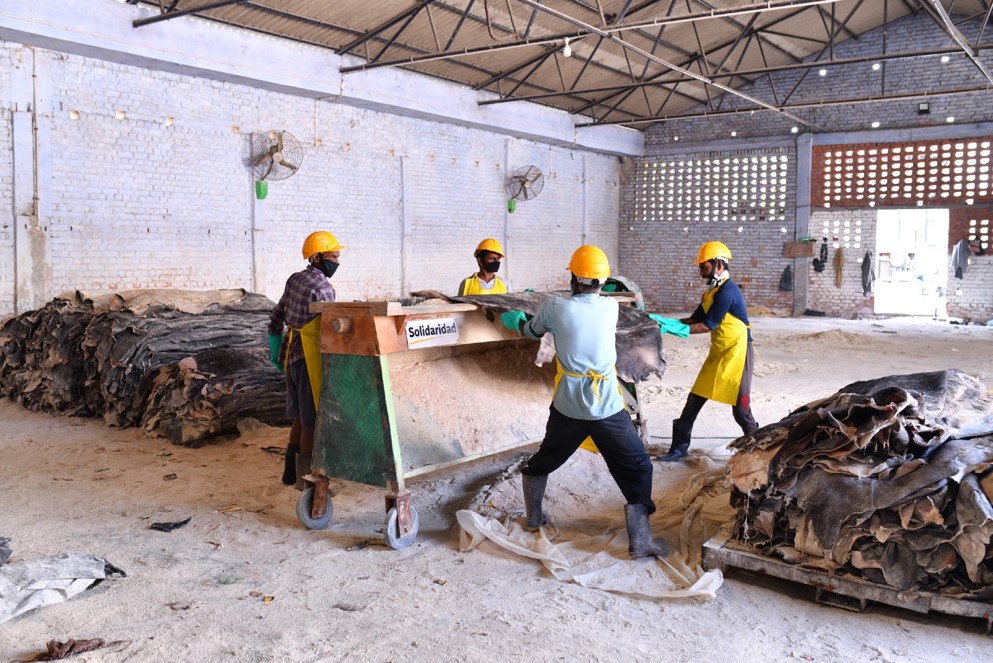
The year 2020 began on a low note with the Covid-19 pandemic posing a major challenge mid-March onwards for staff movement and field operations. In Asia, our utmost priority has been securing health, safety and well-being of the staff and their family. We were proactive and swift enough in ensuring safe working conditions, maintaining strict standards of social distancing and building necessary infrastructure and equipment across all our operations in Asia.
As part of the programme expansion of Solidaridad in Asia, the Japan office was established along with the recruitment of a Country Manager for Japan. Besides, our Sri Lanka office recruited a Chief of Party; China office recruited a Lead Programme Manager & PMEL and for sustainable leather project expansion in India, a leather team was established in Kolkata, India. As part of operations in Thailand, a senior associate was hired for programme planning and implementation. For cross learning and organisation development, the role of Acting Country Manager was assigned to one of the existing senior colleagues for Sri Lanka. In total, 94 new positions were recruited in 2020. These include 20 women and 74 men as staff and associates.
During 2020, the HR section of MASP for 2021-2025 was developed looking at the need for strengthening gender inclusion, proposed project initiatives in existing and new countries and requirements of new expertise.
Solidaridad Asia believes that unless there is cohesion among actors, that is to say, power of the state, scale of the private sector, capacities of the CSOs and abilities of the people, achievement of meaningful and long lasting change is difficult. Therefore, partnership is the mainstay for Solidaridad Asia right from the designing to implementation of the project. Longstanding partnership with private sector companies like DSCM Ltd, NETAMS, Jayant Agro, Vippy Industries, BRAC Dairy has provided proof of concepts where business and social agenda can work in tandem. Partnership with financial institutions Like IFC, Asian Bank has acted like an accelerator for the projects. Government agencies partnership – Central Pollution Control Board of India, Department of Agriculture Extension in Bangladesh, Provincial Governments in Central and Uva Province in Sri Lanka and Indonesian provincial councils has helped Solidaridad to influence policies for the betterment of the communities. Partnerships with Research Institutes like Central Leather Research Institute of India and University of Khulna in Bangladesh have lent rigour to the programmes.
In-field interventions promoting sustainable agricultural practices are clearly important, but without integrating this with wider communities and eco-systems then impact will always be limited. Identifying these linkages and impacts and dependencies is challenging and an area that the FDW could have placed a greater emphasis from the start… By combining their expertise with the existing local knowledge and networks developed by Natems and Solidaridad, the project has developed the capacity to identify and measure the impact and relationship between the farmers and their practices.
CSO, Natems Sugar Private Ltd. (private sector partner in FDW Sugarcane)
Together with Solidaridad, we reach more farmers and connect to the consortium. Through this association, we reach more villages, bring improved services to farmers and at the same time, we are also associated with new stakeholders. And the technical support from different organizations is very helpful
CEO, Vippy industries Ltd. (private sector partner in SDGP Soy
In 2020, due to several restrictions imposed because of COVID-19, it became extremely critical for the PMEL team in Solidaridad Asia to tweak its approach in capturing granular data and measuring key results. Since the projects underwent changes in the way they were functioning, the PMEL team was quick to realign and support project teams in devising new mechanisms for capturing and measuring the revised project data and targets.
In 2020, the PMEL team worked with the project team and the Network Secretariat for revising the PfC projects’ target in May 2020 and then again in September 2020. This was initiated to ensure that realistic targets are communicated to the Dutch government, taking into account the imposed restrictions and limitations due to COVID-19. The PMEL team in Solidaridad Asia worked closely with Network Secretariat in developing the overall M&E framework for the ‘Reclaim Sustainability’ project and the MASP 3 data model.
To ensure continuity of work during the lockdown, guidelines were developed to conduct telephonic surveys, which were used in steering some evaluation studies. Various evaluation studies were undertaken in 2020 to capture the project’s progress at various levels (baseline, midline, annual surveys, etc.) For evaluation studies, robust evaluation designs were used to capture our results such as mixed methodology, quasi-experimental design, cohort design, pre-post study, etc. Additionally, there were some studies conducted to understand the impact of Covid-19 on farmers and women. Given below is the list of several evaluation studies undertaken in 2020:
- TRINITEA baseline study
- SaFaL-2 midline study
- Impact of Covid-19 on women farmers in Bangladesh
- Initiated crop cutting study — yield measurement in sugarcane
- Baseline study on USAID Bangladesh Dairy project
- NI-SCOPS Indonesia and Malaysia — Climate Vulnerability Assessment
- Initiated Idea-Vodafone project — baseline study
- SDGP India — baseline study (desk research)
- Gansu Project (China) — assessment study with cotton farmers
- FDW leather project — participatory assessment on water and food security in Asia
- Initiated FDW leather midline study
- Ganga landscape project — Evaluation of Advocacy for Change
- Study on impact of COVID-19 on smallholder farmers in Bangladesh
Initiated midline study for Reaching the Unreached (RTU) project in Sri Lanka
In 2020, the communications team of Solidaridad Asia engaged in a variety of activities to ensure visibility and outreach of the programmes across Asia. The team initiated several online seminars or webinars, covering entire Asia and multiple themes. A webinar series on Sustainable & Inclusive Supply Chain was designed and executed by the team to promote the newly opened Japan office of Solidaridad. More than seven sessions were covered in the series spanning several months. Another set of webinars were organized towards the end of the year with eminent agriculturalists and scientists on soil and agro-economy.
Throughout the year, the communication team was actively involved in designing branding collaterals such as brochures, videos, flyers and other communication materials. The team ensured regular updates on events and developments on the social media pages and the website of Solidaridad Network.
The team worked on and produced the following:
- More than 10 tutorial videos (films) on Covid-19 prevention and good agro practices for TRINITEA (tea programme, India) farmers, which were broadcasted on reputed regional news channels
- Around 35 animated tutorials on good agricultural practices, including financial literacy modules, for sugarcane programme in India, along with training sessions over tele-conferencing
- Brochures and booklets for different programmes, including sugarcane, tea, palm oil, cotton, leather and gender among others
- Five articles (authored by Dr. Shatadru Chattopadhayay) published in reputed mainstream newspapers
- Gender report on impact of Covid-19 on women in South and South-East Asia and the possible ways of reducing their vulnerability
- Online launch of the ‘Effective Waste Management and Sustainable Development of the MSME Tanning Companies in Bantala Leather Cluster’ in Kolkata, India
- Collaboration with the Embassy of the Netherlands and UNDP for photo exhibitions on the International Women’s Day
- Production of more than 10 online interactive events for advocacy and partnership opportunities
No integrity issues were reported in the region.
Finance
Fundraising initiatives in the Asia region has been largely successful despite the impact of Covid. Through the year we have adopted a proactive approach to fundraising. We have been able to raise funds locally (Idea Vodafone) for Smart Agriculture and internationally (USAID, SDGP). Our reflection of success in fundraising highlights that it is critical to provide an innovative approach, method, tool or process to the donors. Productization of processes or development of products for social change helps in articulating the benefits and is easier for the donors to understand the concepts. Proactive identification of issues and development of concept notes prior to any call for proposals helps in finding right donors and reduces the time in development of proposals.
Impact of Covid-19 was predominantly visible. While there were many proposals that were submitted for emergency Covid response, we couldn’t convert it to substantial projects. Our collaboration with the Dole Foods suffered as businesses were hit and is yet to recover.
